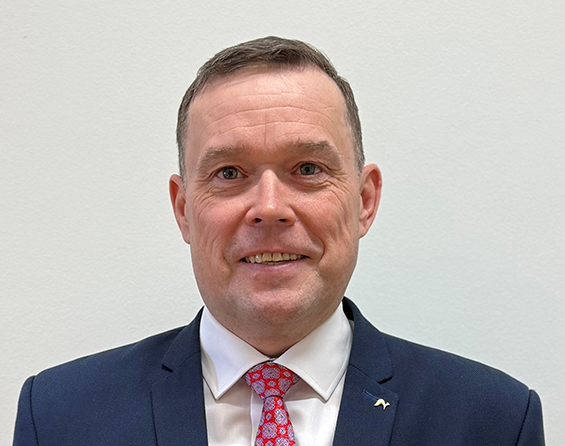
AI Profiileerimine: Madis Timpson
Päevakorrapunkte: 54
1140/1140 profiling (100.0%)
Sõnavõtte kokku: 109
Analüüsi periood: 2024-07-23 - 2025-09-24
Poliitiline positsioon
Poliitiline positsioon on tugevalt keskendunud õigusriigi põhimõtete kaitsmisele ja seadusloome kvaliteedi parandamisele, rõhutades järjekindlalt põhiseaduslikku vastavust, menetluskorrektsust ning õiguskantsleri ettepanekute toetamist. Poliitiku agenda ühendab sotsiaalse vastutuse (haavatavate rühmade, laste ja pensionäride toetamine) tugeva nõudmisega administratiivse efektiivsuse ja bürokraatia vähendamise järele, viidates nullbürokraatia algatuse taaselustamisele. Positsioneerides end kogenud poliitika- ja protseduurikeskse tegijana, kaitseb ta Reformierakonna valitsuse tegevust, rõhutades stabiilsust, omandikaitset ja pragmaatilisi majanduslahendusi, nagu vanglakoha rentimine.
Teemade ekspertiis
Poliitiku asjatundlikkus on valdavalt koondunud õigusloome ja justiitsvaldkonda, kus ta demonstreerib erakordset sügavust KarS-i, KrMS-i ja keeruliste põhiseadusõiguse nüanssides, viidates sageli ka õigusaktide ajaloolisele kontekstile ja varasematele eelnõudele. Teine tugev fookus on sotsiaalpoliitikal ja tervishoiu haldusküsimustel, eriti sotsiaalkindlustuse, hooldereformi ja ravimivarude haldamise finants- ning juriidilistel detailidel. Tema autoriteet on järjepidev, tuginedes täpsetele andmetele, tehnilistele terminitele ning põhjalikule teadmisele parlamendi menetluskorrast, komisjonide tööst ja institutsioonide (nt Riigikontroll, õiguskantsler) seisukohtadest.
Retoorriline stiil
Kõneleja retooriline stiil on läbivalt väga formaalne, lugupidav ja analüütiline, keskendudes peamiselt protseduurilisele täpsusele, faktidele ja juriidilisele loogikale, eriti raportööri rollis, kus ta rangelt väldib isiklikke emotsionaalseid apelle. Stiili iseloomustab tugev rõhuasetus loogilisele argumentatsioonile, numbritele ja õiguslikule korrektsusele, viidates sageli põhiseadusele ja õiguskantsleri seisukohtadele. Poliitilistes debattides ja kriitiliste küsimuste esitamisel muutub toon otsekoheseks ja resoluutseks, sisaldades teravaid isiklikke märkusi ja metafoore vastaste suunas, kuid säilitades üldiselt asjaliku ja selgitava lähenemise.
Tegevusmustrid
Poliitiku tegevusmuster on erakordselt intensiivne ja struktureeritud, olles peaaegu igal kuul (v.a suvepuhkus) Riigikogu täiskogul aktiivne, sageli mitmel järjestikusel päeval. Tema domineeriv roll on juhtivkomisjoni ettekandja ja raportöör, kes esitab põhjalikke kokkuvõtteid seadusloome protsessidest, keskendudes algselt Sotsiaalkomisjonile (2024) ja hiljem laienedes Õiguskomisjoni teemadele (2025). Lisaks detailsete aruannete esitamisele osaleb ta aktiivselt debattides, esitades regulaarselt täpsustavaid ja protseduurilisi küsimusi ministritele ja õiguskantslerile. Tegevus hõlmab ka osalemist väljaspool Riigikogu (nt kohtunike täiskogu Viljandis) ning tihedat seotust valijate ja komisjonide ühisürituste planeerimisega.
Opositsiooni hoiak
Poliitiku vastasseis on valdavalt protseduuriline ja õigusloome kvaliteedile keskenduv, kritiseerides nii valitsuse (menetluslikud rikkumised, põhiseaduspärasuse analüüsi puudumine) kui ka opositsiooni (nõrgad umbusaldusavaldused, protseduurilised vead) tegevust. Peamised sihtmärgid on riiklik bürokraatia ja varasemad valitsused, keda süüdistatakse tegevusetuses, samuti vastandutakse astmelisele tulumaksule. Kuigi üldine toon on mõõdukas ja rõhutab võimude lahusust, esineb teravat kriitikat konkreetsete kolleegide suunas, keda süüdistatakse eelnõude vääriti tõlgendamises, hirmude külvamises või dokumentide mittetundmises.
Koostööstiil
Poliitiku koostööstiil on pragmaatiliselt konsensuslik ja laiapõhjaline, keskendudes seadusloome sujuvale edasiviimisele läbi protseduurilise korrektsuse. Ta rõhutab järjepidevalt ühehäälseid otsuseid komisjonis ning tegutseb aktiivse vahendajana, kes suudab leida kompromisse nii kolleegide kui ka kriitiliste institutsioonide (Õiguskantsler, Riigikontroll, Andmekaitse Inspektsioon) vahel. Koostöövalmidus on suunatud laia toetuse saavutamisele, kaasates ministeeriume, ameteid ja huvigruppe, ning ulatub ka opositsioonini, keda kutsutakse ühinema laiapõhjaliste eelnõudega.
Regionaalne fookus
Poliitiku fookus on tasakaalustatud, hõlmates regulaarselt nii riiklikke seadusandlikke ja eelarveteemasid kui ka rahvusvahelisi võrdlusi (nt EL, Holland, Taani). Regionaalpoliitiliselt on tema tegevuse keskmes Kesk-Eesti (eriti Viljandi piirkond), millele ta nõuab spetsiifilist abi ja infrastruktuuri arendamist. Läbivaks teemaks on teenuste ja töökohtade detsentraliseerimine, rõhutades vajadust hajutada halduskoormust (notarid), tervishoiuvarusid ja kaugtöökohti keskuslinnadesse väljaspool Harjumaad ja Tartut, et tagada regionaalne tasakaalustatud areng.
Majandusvaated
Poliitiku majandusvaateid iseloomustab tugev rõhuasetus fiskaalsel korrektsusel, riigieelarve kulude kontrollil ja administratiivse efektiivsuse suurendamisel, nõudes nullbürokraatiat ja kritiseerides maksumaksja raha ebaefektiivset kasutamist. Ta on selgelt astmelise tulumaksu vastane, pooldades maksuküüru kaotamist, et toetada keskmise palga teenijaid, ning nõuab maksutõusude puhul täielikku läbipaistvust. Kuigi ta toetab sihipäraseid sotsiaalkulutusi, eriti pensionäride vaesuse leevendamiseks ja asendussissetuleku laiendamiseks, rõhutab ta samal ajal vajadust vähendada ettevõtjate halduskoormust ja tagada tervishoiu ning sotsiaalteenuste finantsiline jätkusuutlikkus. Üldiselt pooldab ta majanduskasvu ja töökohtade loomist, toetades kodumaist kaitsetööstust ja kritiseerides turukontsentratsiooni (pangandus).
Sotsiaalsed küsimused
Poliitiku sotsiaalpoliitiline tegevus on laiahaardeline, keskendudes pidevalt pere- ja lastetoetuste süsteemi ajakohastamisele, sündimuse languse kriisi lahendamisele ning elatisvõlgnike vastutusele võtmisele. Oluline rõhk on suurte sotsiaalhoolekande reformide (hooldus, töötuskindlustus) elluviimisel, tagades haavatavate rühmade (puuetega inimesed, eakad) teenuste kättesaadavuse ja kvaliteedi. Tundlikke teemasid, nagu sooküsimused ja lastekaitse (pedofiilide vastasus), käsitletakse ettevaatlikult, samal ajal kaitstes tugevalt kodanikuvabadusi ja privaatsust riikliku moraali- või mõttepolitsei tekkimise eest. Lisaks toetab ta pragmaatilist kriminaalõigust ja vangistuspoliitikat, mis on suunatud kulude kokkuhoiule ja õiglase karistuse eesmärgile, ning tegeleb aktiivselt töökeskkonna standardite ja noorte tööhõive parandamisega.
Seadusandlik fookus
Poliitiku seadusandlik fookus on kaalukalt jagunenud sotsiaal- ja tervishoiuvaldkonna (sh erihoolekanne, tervishoiuvarude haldamine ja sotsiaalkindlustuse reformid) ning ulatusliku justiitsreformi vahel, keskendudes menetluse tõhustamisele ja õigusselguse suurendamisele. Läbivalt on tema prioriteediks seadusloome kvaliteet, rõhutades ranget protseduurilist korrektsust, põhiseaduspärasuse analüüsi ja bürokraatia vähendamist. Ta tegutseb enamasti aktiivse toetaja, selgitaja ja juhtiva raportöörina, tagades eelnõude edasiviimise, ning on hiljuti tegelenud ka julgeoleku ja põhiõiguste tasakaalustamisega (nt numbrituvastuskaamerate eelnõu).